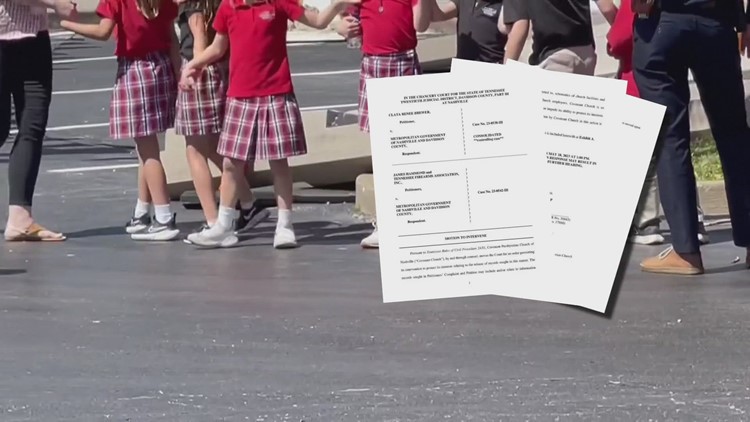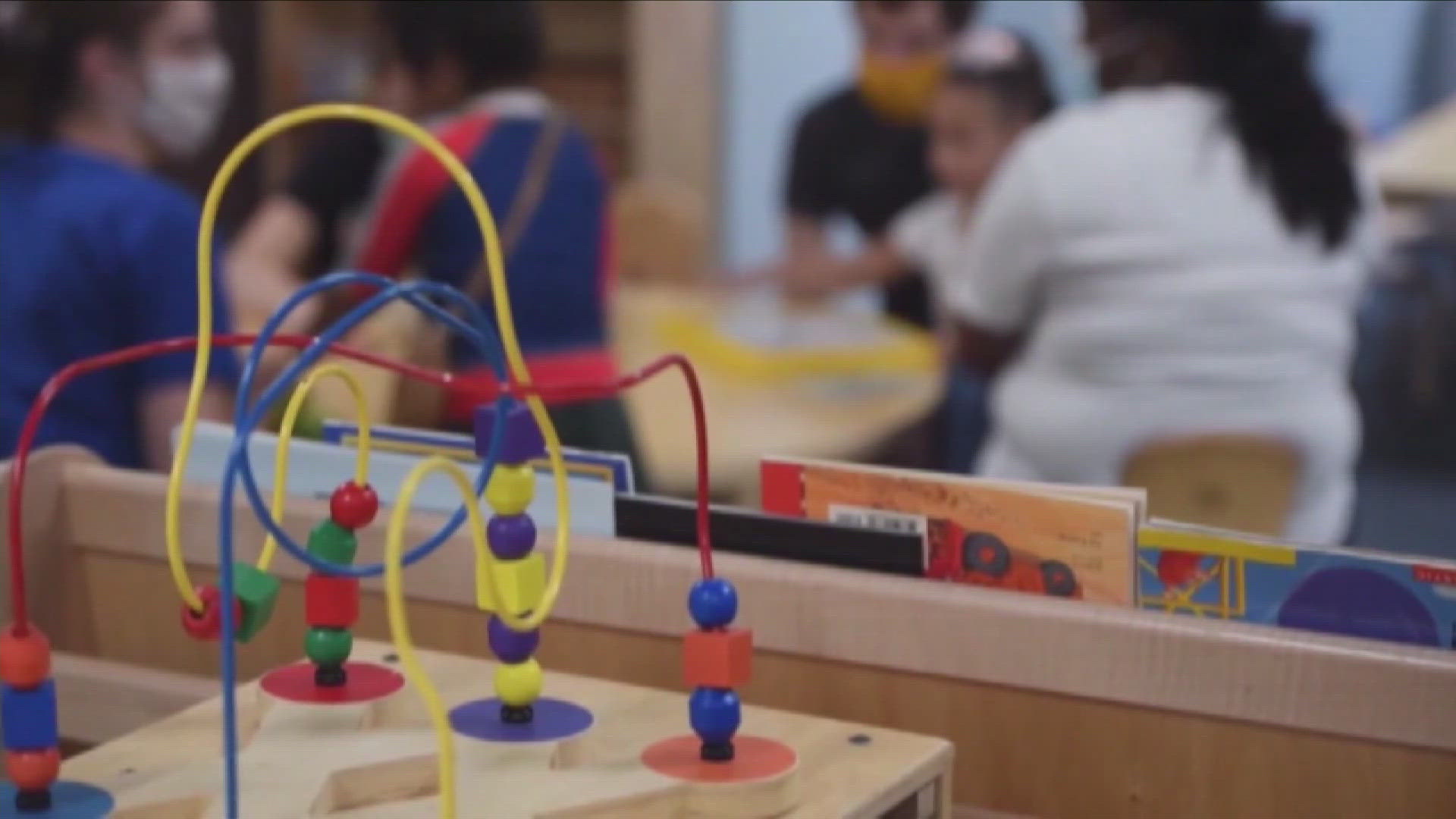NASHVILLE, Tenn. — A Tennessee judge has ruled that a group of parents can have their say in a lawsuit over the writings of a shooter who killed six people at their children's school.
The judge ruled Wednesday night that the Covenant School parents have a right to intervene against other groups that want the shooter's writings — along with some other documents in the police investigation — released according to the Tennessee Public Records Act.
Journalists, a state senator, a law enforcement nonprofit and a gun-rights organization have been rebuffed by Nashville police, who say the records are part of an active investigation. However, police have indicated that they do plan to release the shooter's writings eventually. A declaration filed recently in the court case by police Lt. Brent Gibson estimated that it could be 12 months before the case is closed.
At a Monday hearing on the consolidated requests, an attorney for a group of Covenant School parents argued that they and their children are crime victims, with protections under the state constitution that include the right to be free from harassment, intimidation and abuse throughout the criminal justice system.
Releasing the shooter's writings could violate those rights, Eric Osborne argued. He said parents have a "real fear" of a repeat shooting at the private Christian school, and their constitutional rights take precedence over mere statutory rights, like the right to access public records.
Chancery Court Judge I'Ashea Myles also allowed the intervention of The Covenant School and Covenant Presbyterian Church, whose building houses the school, after their lawyers said their primary concern is preventing the release of any information that could jeopardize security, such as detailed drawings of their facilities.
Those fighting to make the records public include Republican state Sen. Todd Gardenhire, who filed a joint petition with The Tennessean newspaper. More than 60 Tennessee House Republicans have called for their release, but Gardenhire is the only one of them who has filed suit.
The lawmakers have said the shooter's writings could provide valuable insights as they prepare for a special session called by Gov. Bill Lee, who is pushing to remove firearms from people judged dangerous to themselves or others. Lawmakers declined to take up Lee's proposal during the legislative session that ended last month.
State law gives members of the General Assembly access to records held by the Tennessee Bureau of Investigation if a legislative committee approves it through a resolution. To date, no lawmakers have requested to view the confidential investigative file, TBI spokesperson Josh DeVine said.
Gardenhire said in a statement, "It should not take an act of the legislature to secure public records unlawfully withheld from the people of Tennessee."
Lee, meanwhile, is allowed as governor to view the investigative file under state law, but the Republican doesn't plan to look at the documents before local law enforcement officials "provide clarity" on them for Tennesseans, said his spokesperson, Jade Byers.
Police have said the shooter, Audrey Hale, had been planning the massacre for months. Hale fired 152 rounds during the attack before being killed by police. Hale was under a doctor's care for an undisclosed "emotional disorder," police said. However, authorities haven't disclosed a link between that care and the March 27 shooting.
Killed in the attack were Evelyn Dieckhaus, Hallie Scruggs and William Kinney, all 9 years old. The three adults killed were Katherine Koonce, 60, the head of the school, and custodian Mike Hill and substitute teacher Cynthia Peak, who were 61.



